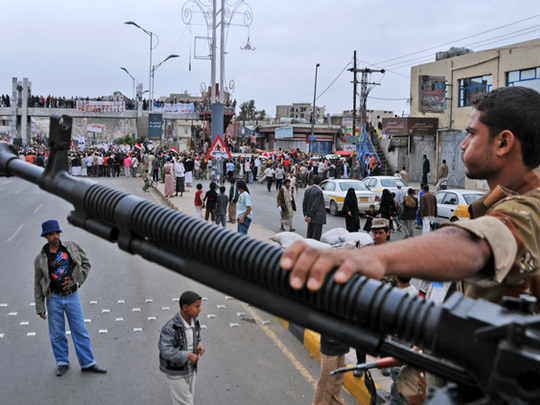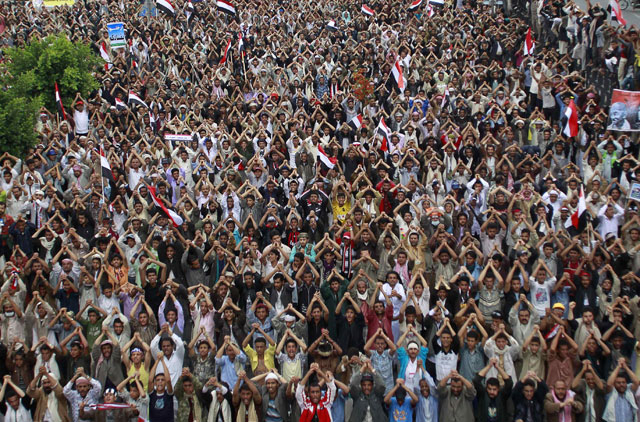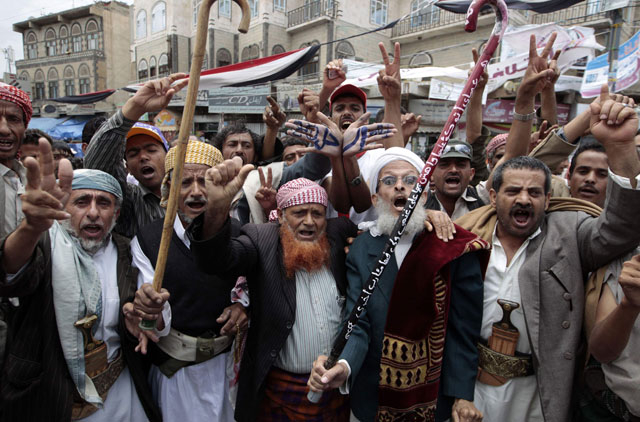
Sana'a: Heavy explosions rocked the Yemeni capital Sana'a in the early hours of Thursday as fighting to topple the veteran president, Ali Abdullah Saleh, threatened to descend into civil war.
A Yemeni offical says dozens were killed in the overnight clashes, and a witness says that the home of a tribal leader sustained significant damage.
It was previously reported that at least 48 people had been killed since Monday in a part of northern Sana'a where fighters loyal to powerful tribal leader Sadiq Al Ahmar have been attacking and trying to take over government buildings including the Interior Ministry.
A Reuters correspondent was woken after midnight by the latest blasts overnight.
"The explosions can be heard across town in the south of Sana'a. This seems to be heavier weapons than the machineguns and the mortars of the past few days," one resident said.
Each side blamed the other for the violence, which the opposition said could start a civil war.
The US and Saudi Arabia, both targets of foiled attacks by Al Qaida member in Yemen, have tried to defuse the crisis and avert any spread of anarchy that could give the global militant network more room to operate.
Washington ordered all non-essential diplomats and embassy family members to leave the country.
Alarming turn
Developments in Yemen took an alarming turn on Wednesday as civilians fled deadly clashes between government forces and the loyalists of an influential tribal leader who backed protests calling for the ouster of President Ali Abdullah Saleh.
Heavy casualties in three days of fighting forced Yemenis to flee the ‘sandbagged streets' around the mansion of Shaikh Sadiq Al Ahmar, the chief of the Hashid tribe, also the tribe Saleh belongs to.
Both Saleh and Al Ahmar's families accused each other of dragging the country into a civil war.
"What happened was a provocative act to drag us into civil war, but it is limited to the Al Ahmar sons. They bear responsibility for shedding the blood of innocent civilians," Saleh told mediapersons.
Hamid Al Ahmar, opposition politician and Al Ahmar's brother, was quoted as saying on Al Jazeera television that "this is an attempt to drag the revolution from its peaceful path ... but this is understood, and it won't affect the path of the revolution. The popular revolution."
Describing the development as "dangerous", Yemeni political analyst Mohammad Zaheri told Gulf News that the fighting is not an "internal tribal conflict or the beginning of civil war", adding "it seems that President Saleh has started to play the tribal card."
Al Ahmar loyalists Wednesday seized public buildings, including those of state news agency Saba and national airline Yemenia. They also tried to storm the interior ministry headquarters.
- With input from agencies














